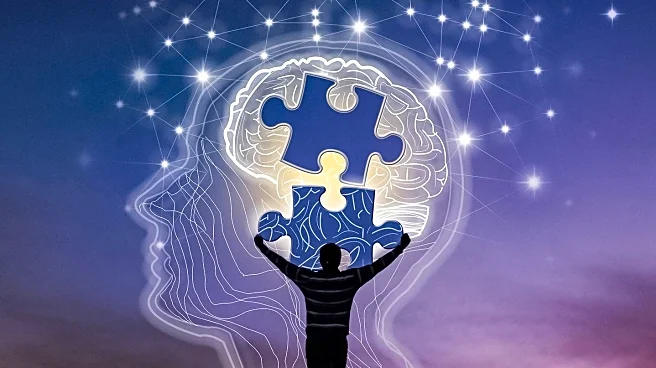What's Happening?
A two-day conference on attention deficit hyperactivity disorder (ADHD) was held at the Pomme d'Or Hotel, organized by ADHD Jersey. The event aimed to initiate significant changes towards making the island
more neuroinclusive. Key speakers included Rachel Boss from ADHD Jersey, who expressed optimism about ADHD being taken seriously, and Lesley Harrison from Autism Jersey, who emphasized the importance of collaboration between organizations to support individuals with ADHD. The conference was attended by professionals from various sectors, including probation, education, and social services, as well as the general public. Discussions focused on the challenges faced by neurodiverse individuals and the need for systemic changes in education and community support.
Why It's Important?
The conference highlights a growing recognition of the challenges faced by neurodiverse individuals, particularly those with ADHD, and the need for systemic changes to support them. This initiative is crucial as it addresses the broader societal and economic impacts of ADHD, including its prevalence in the prison system. By fostering a more inclusive environment, the island can potentially reduce long-term costs associated with inadequate support for neurodiverse individuals. The event also underscores the importance of collaboration between various sectors to create a supportive community that benefits everyone, including neurotypical individuals.
What's Next?
The Neuroinclusive Strategy Jersey, developed in collaboration with Autism Jersey, aims to raise awareness and improve support for neurodiverse individuals over the next three years. This strategy will likely involve continued collaboration between charities, government bodies, and educational institutions to implement the necessary changes. The conference has set the stage for ongoing dialogue and action, with stakeholders expected to monitor progress and adapt strategies to ensure effective support for neurodiverse individuals on the island.
Beyond the Headlines
The conference not only addresses immediate concerns but also highlights the long-term cultural shift towards inclusivity and acceptance of neurodiversity. By changing educational standards to accommodate neurodiverse students, the island can foster an environment where all individuals can thrive. This shift may also influence broader societal attitudes towards neurodiversity, promoting a more inclusive and understanding community.











